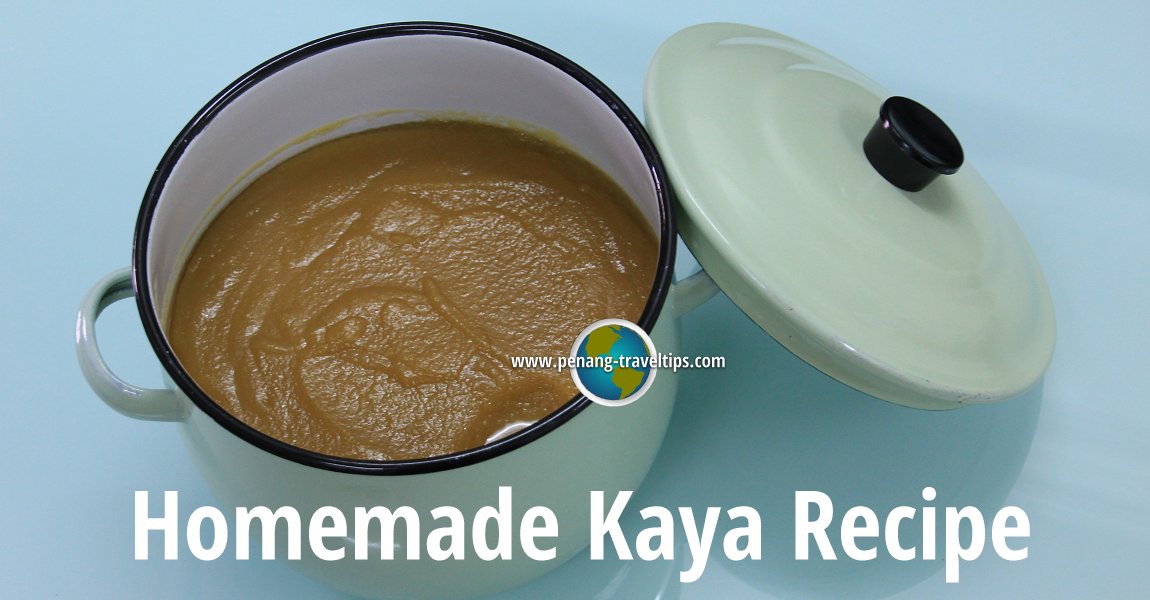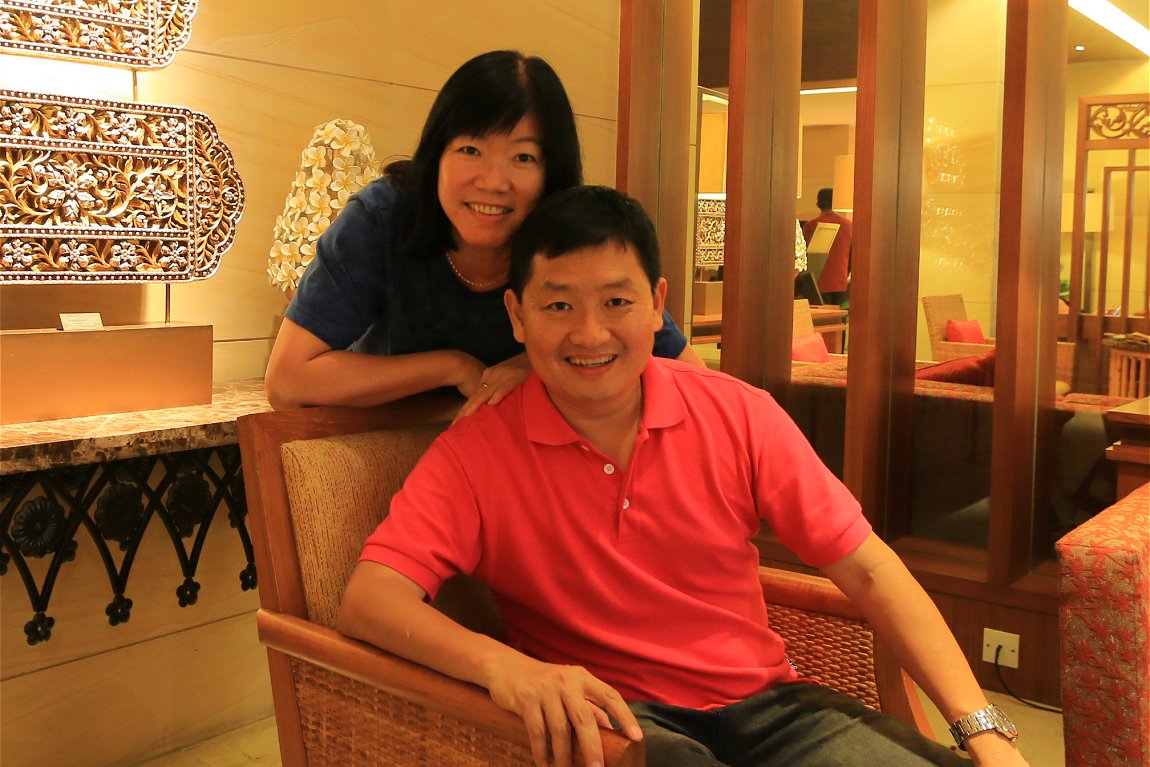
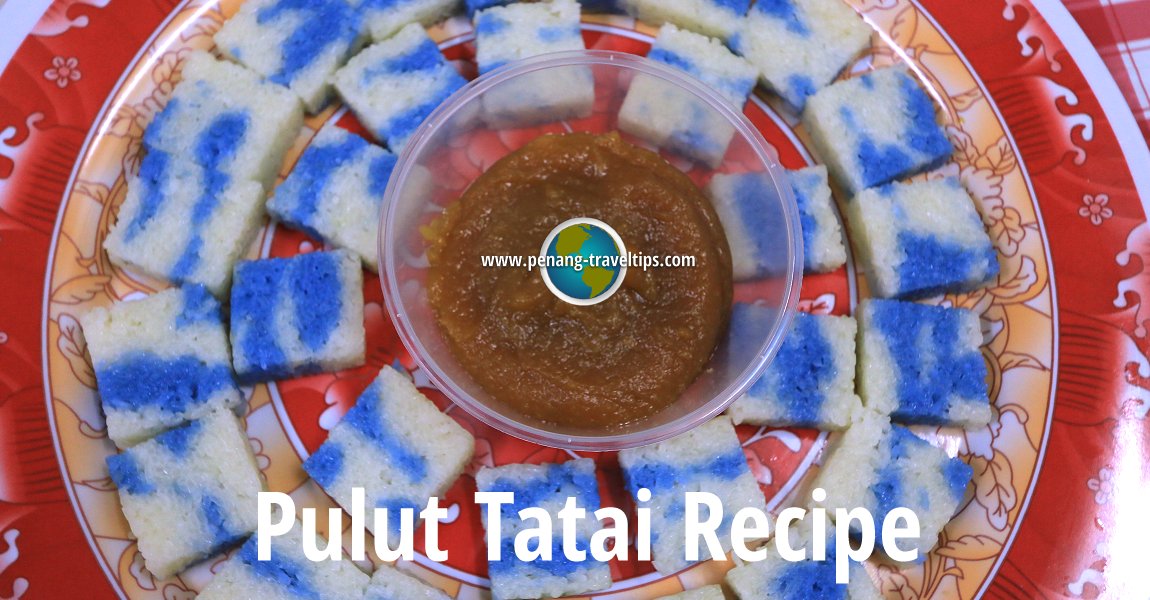 Pulut Tatai Recipe (27 December 2015)
Pulut Tatai Recipe (27 December 2015)
Pulut Tatai, also called Pulut Tai Tai, is a Nyonya kuih made of glutinous rice. The rice for making pulut tatai is dyed with butterfly pea flower, or bunga telang, so that it appears blue. Usually the glutinous rice is separated into two batches, one blue and the other white. These are mixed together to form a single marbled slab. The pulut tatai is usually taken with a dab of kaya on it.
Let me share with you the recipe that my wife and I put together for making pulut tatai. Our recipe is based on various sources including tips from my mother-in-law, recipes we've come across on the Internet and cookbooks, which together help us form our own recipe through trial and error.
Recipe for Pulut Tatai
Ingredients for the kaya- A small bowlful of eggs
- A small bowlful of sugar
- A small bowlful of santan
- Pandan leaves
- Sugar for making the caramel
- Boil a pot of water, using a double boiler or a big pot.
- Mix and whisk the eggs and sugar together until sugar dissolved.
- Pour the mixture into a stainless steel bowl or top unit of the double-boiler.
- Add pandan leaves and double-boiled the mixture until thick and creamy, stirring all the time for about 30 minutes.
- Strain the mixture and return to pot to continue double-boil. Stirring once every 10 minutes.
- Add santan to the mixture, stir to combine.
- Continue double boil, top up water level in the boiler or pot when level recedes.
- Prepare making caramel. Put a few table spoons of sugar in a metal ladle or a small non-stick pan, and heat it on direct flame until sugar turning brown. Do not over-brown the caramel as the taste will be bitter.
- Add the caramel to egg mixture and stir well.
- Wrap the lid of the double boiler with a clean cloth and secure. This is to prevent water from dripping into the kaya.
- Cover the pot with the lid and double boil for about 1 hour or longer. Do not stir during the steaming.
- When jam is cooked, remove pandan leaves and let the kaya to cool before storing into container.
- Serve with pulut tai tai or bread.
- Santan + pinch of salt
- Pandan leaves
- Banana leaves- Scalded and cleaned
- 500 g glutinous rice
- a big handful of bunga telang
- Wash the glutinous rice and separate it into two equal parts of 250 g each.
- Take some bunga telang, pour hot water into it and soak for 10 minutes.
- Press the flowers to release the blue color. Drain the water and pour it into the washed glutinous rice.
- Add in more water and press the flowers until the desired amount of water is obtained.
- Water level must be about 1 inch above the surface of the rice, as the rice will puff up when soaked in water.
- Drain the rice and put it inside a tray in a steamer. Add in santan that has been seasoned with a bit of salt to the same level as the rice. If want to reduce amount of santan, can add water also to top up.
- If softer rice is preferred, adjust the water level. Place pandan leaves on top of the rice.
- Steam until rice is cooked. Mix the two colored rice.
- Pour the cooked rice into a tray lined with banana leaves.
- Use a piece of banana leaf to flattened the surface and press until it is compact.
- Place a heavy object on top of the surface.
- Leave the tray for a few hours until the pulut tai tai is set.
- Cut into desire shaped and sizes.
- Serve the pulut tatai with the kaya
Homemade Kaya Recipe
Related to making pulut tatai, let me also share with you the recipe for our homemade kaya.Details
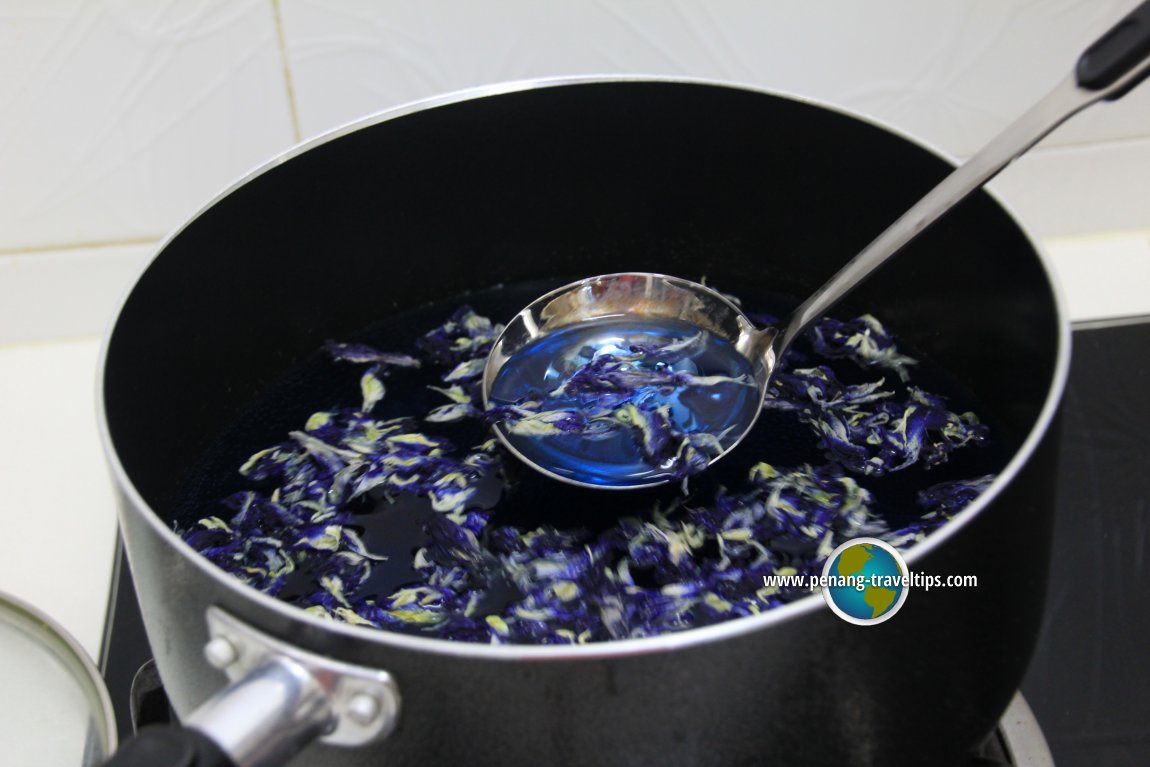 Bunga telang cooking in a pot (30 March 2013)
Bunga telang cooking in a pot (30 March 2013)
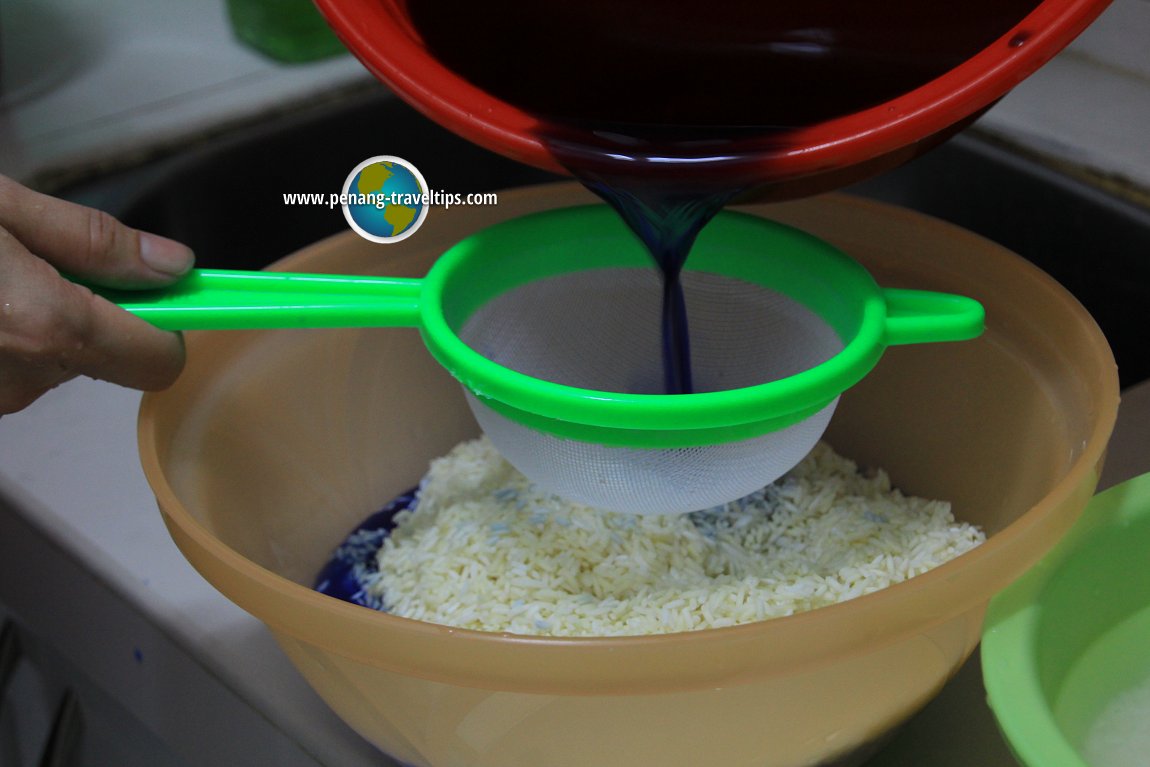 Pour the bunga telang dye to the pulut (30 March 2013)
Pour the bunga telang dye to the pulut (30 March 2013)
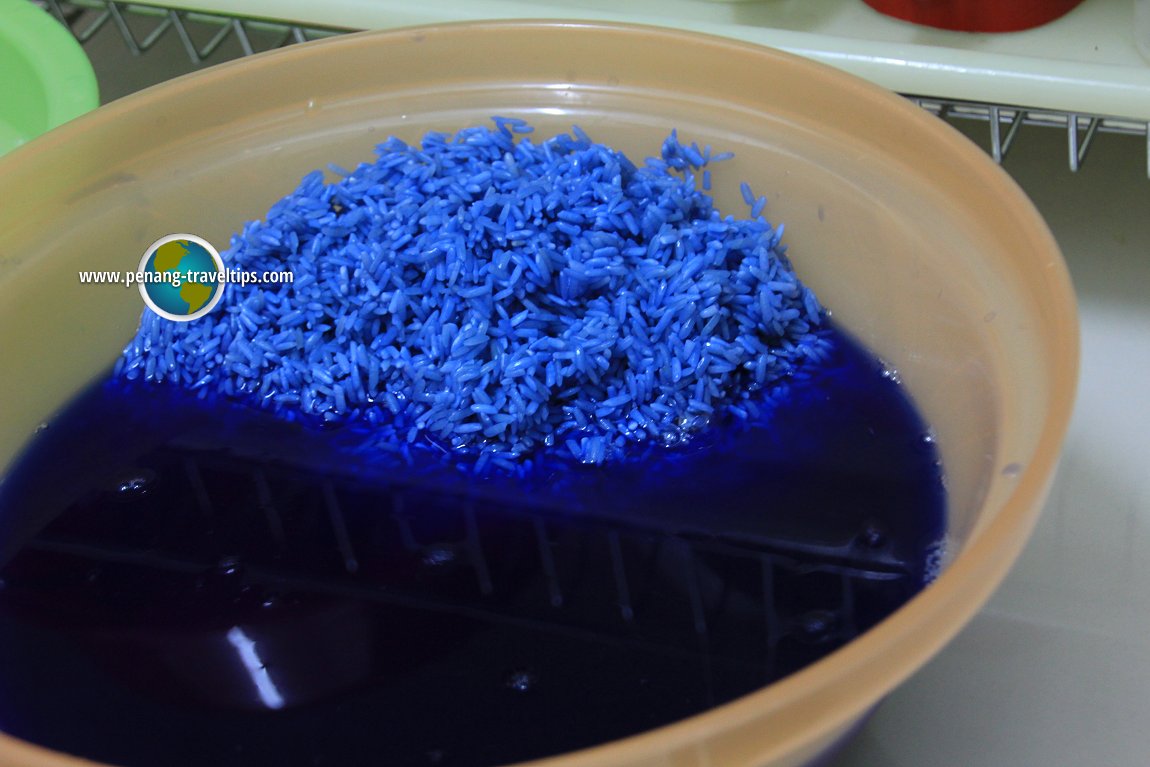 Soaked pulut rice (30 March 2013)
Soaked pulut rice (30 March 2013)
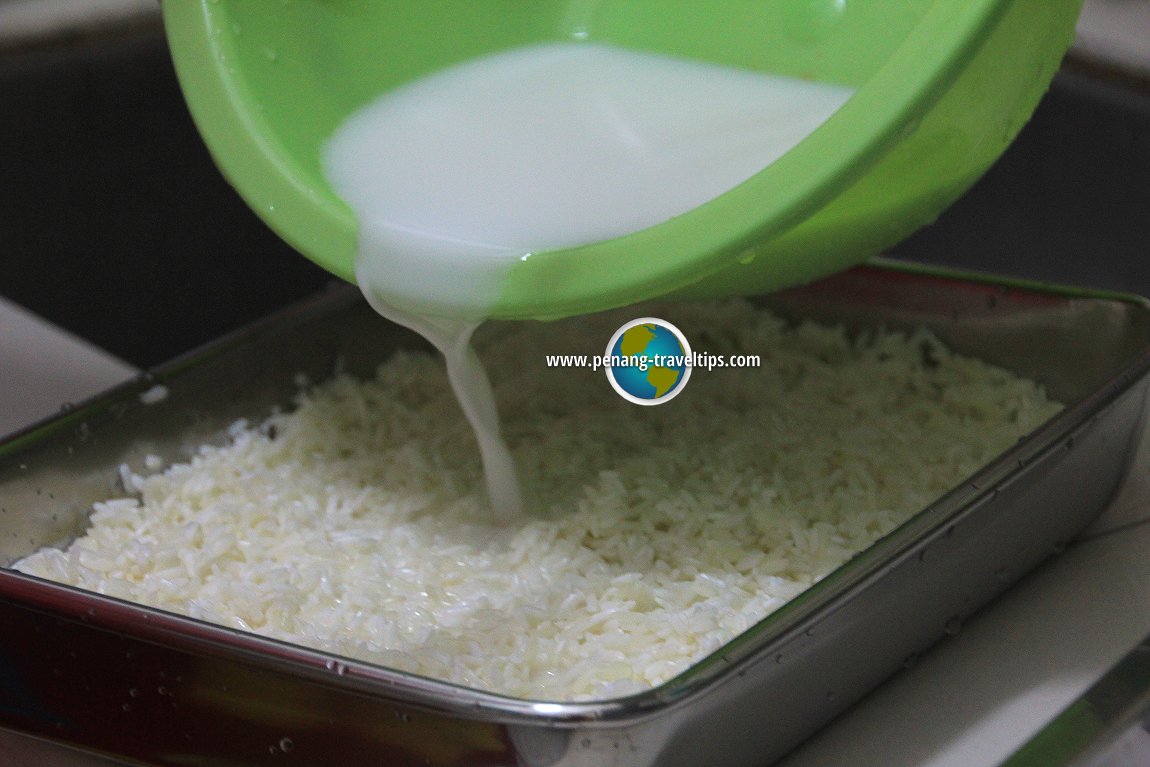 Pouring the santan to the glutinous rice (30 March 2013)
Pouring the santan to the glutinous rice (30 March 2013)
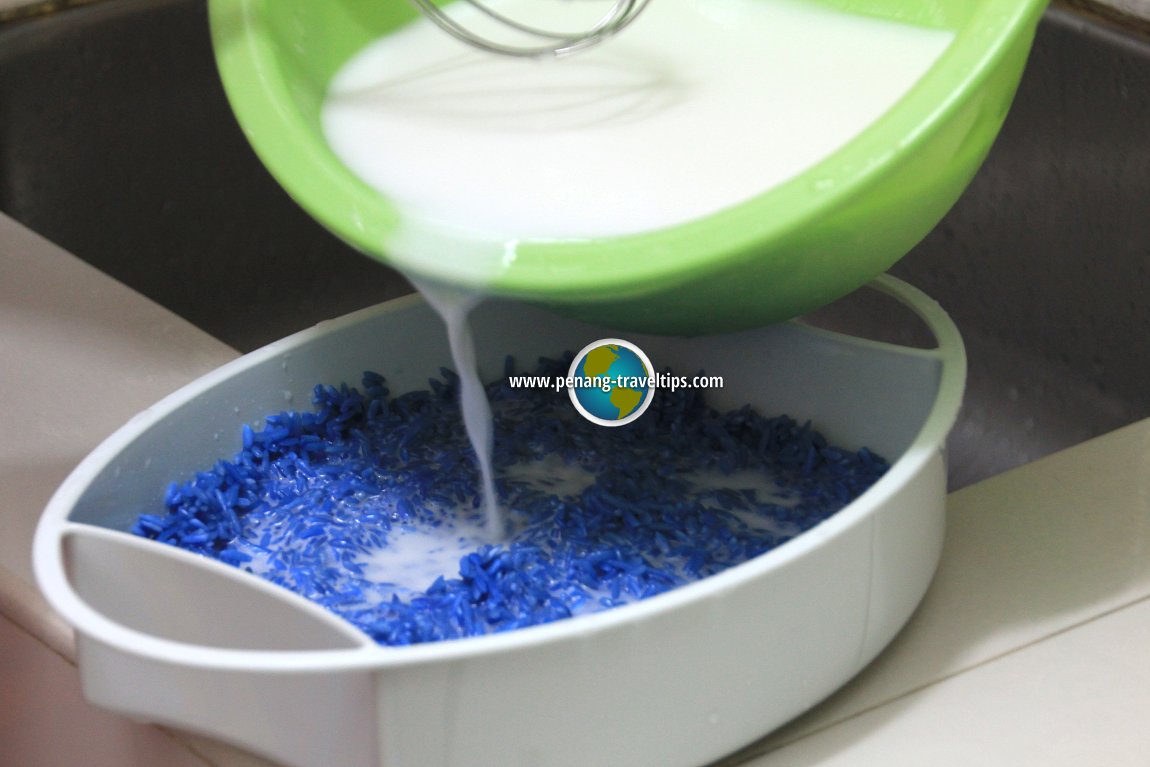 Pouring the santan to the blue rice (30 March 2013)
Pouring the santan to the blue rice (30 March 2013)
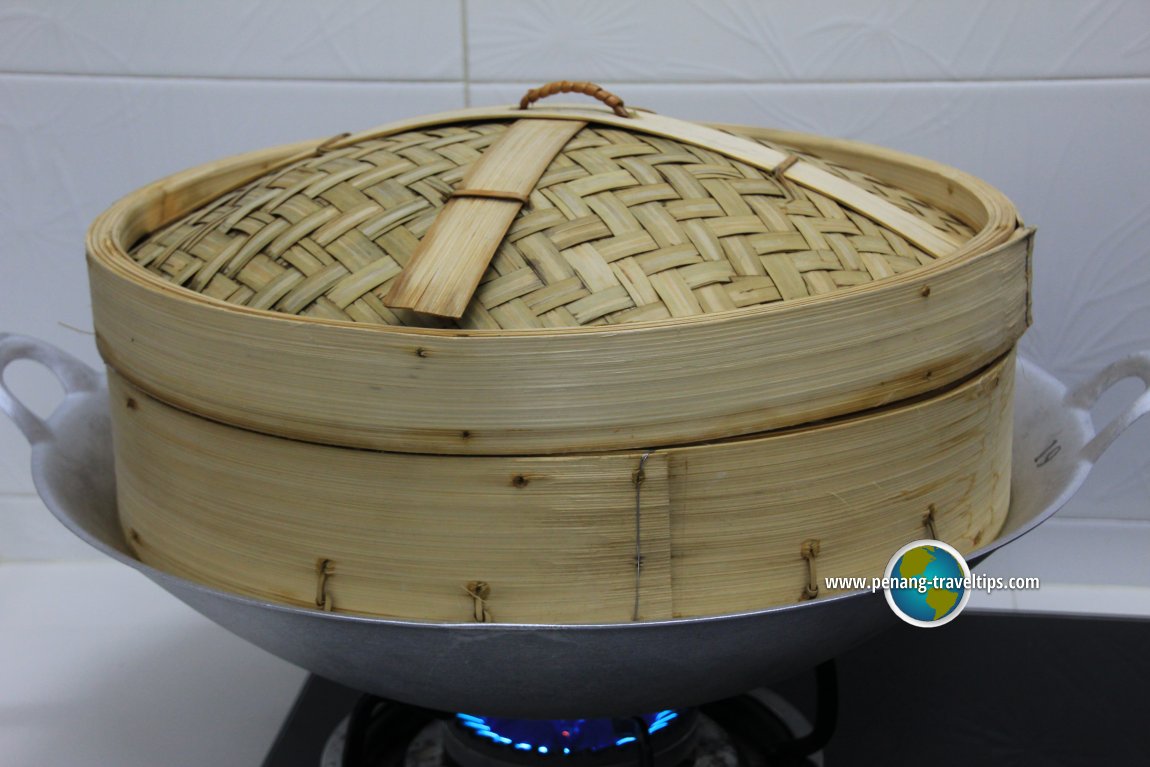 Steam the glutinous rice (30 March 2013)
Steam the glutinous rice (30 March 2013)
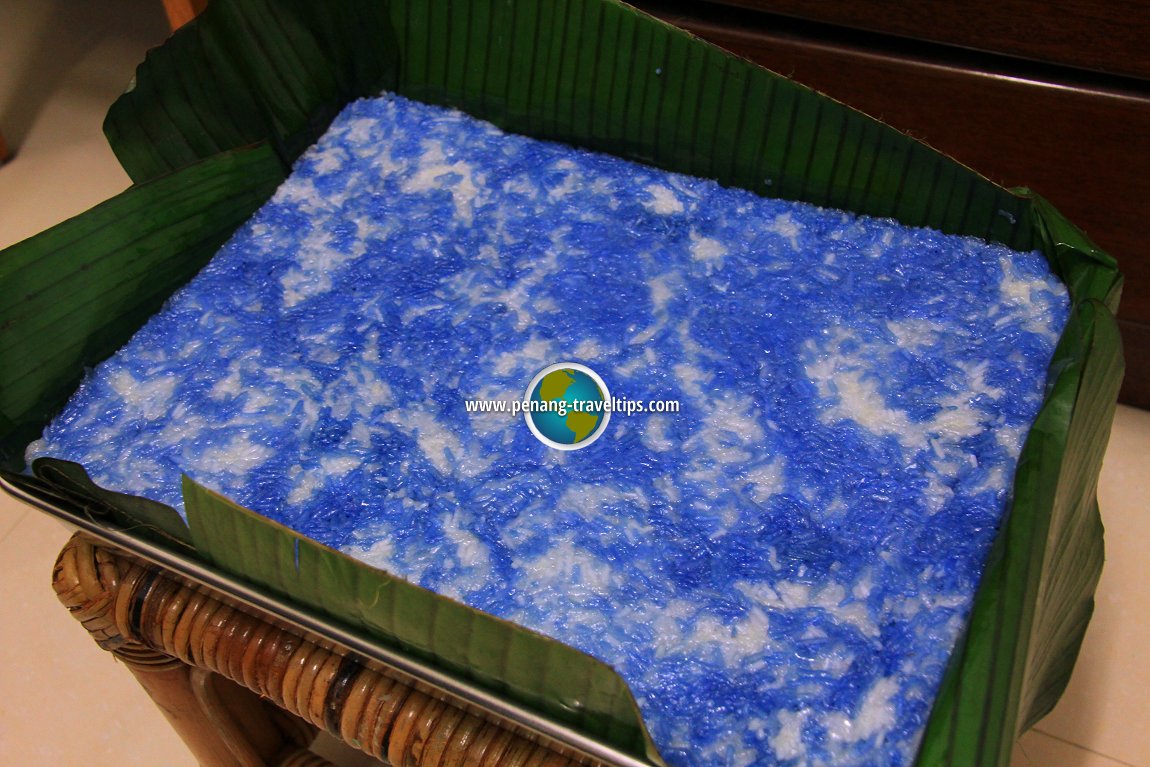 The marbled Pulut Tatai slab. (30 March 2013)
The marbled Pulut Tatai slab. (30 March 2013)
List of Penang Nyonya Kuih
Tim & Chooi Yoke's Recipes of Homecooked Food
Let us share our recipes of homecooked food with you.Details
About this website

Dear visitor, thank you so much for reading this page. My name is Timothy Tye and my hobby is to find out about places, write about them and share the information with you on this website. I have been writing this site since 5 January 2003. Originally (from 2003 until 2009, the site was called AsiaExplorers. I changed the name to Penang Travel Tips in 2009, even though I describe more than just Penang but everywhere I go (I often need to tell people that "Penang Travel Tips" is not just information about Penang, but information written in Penang), especially places in Malaysia and Singapore, and in all the years since 2003, I have described over 20,000 places.
While I try my best to provide you information as accurate as I can get it to be, I do apologize for any errors and for outdated information which I am unaware. Nevertheless, I hope that what I have described here will be useful to you.
To get to know me better, do follow me on Facebook!
Copyright © 2003-2025 Timothy Tye. All Rights Reserved.

 Go Back
Go Back